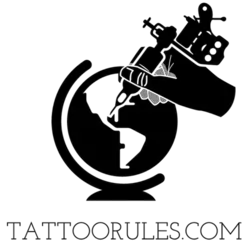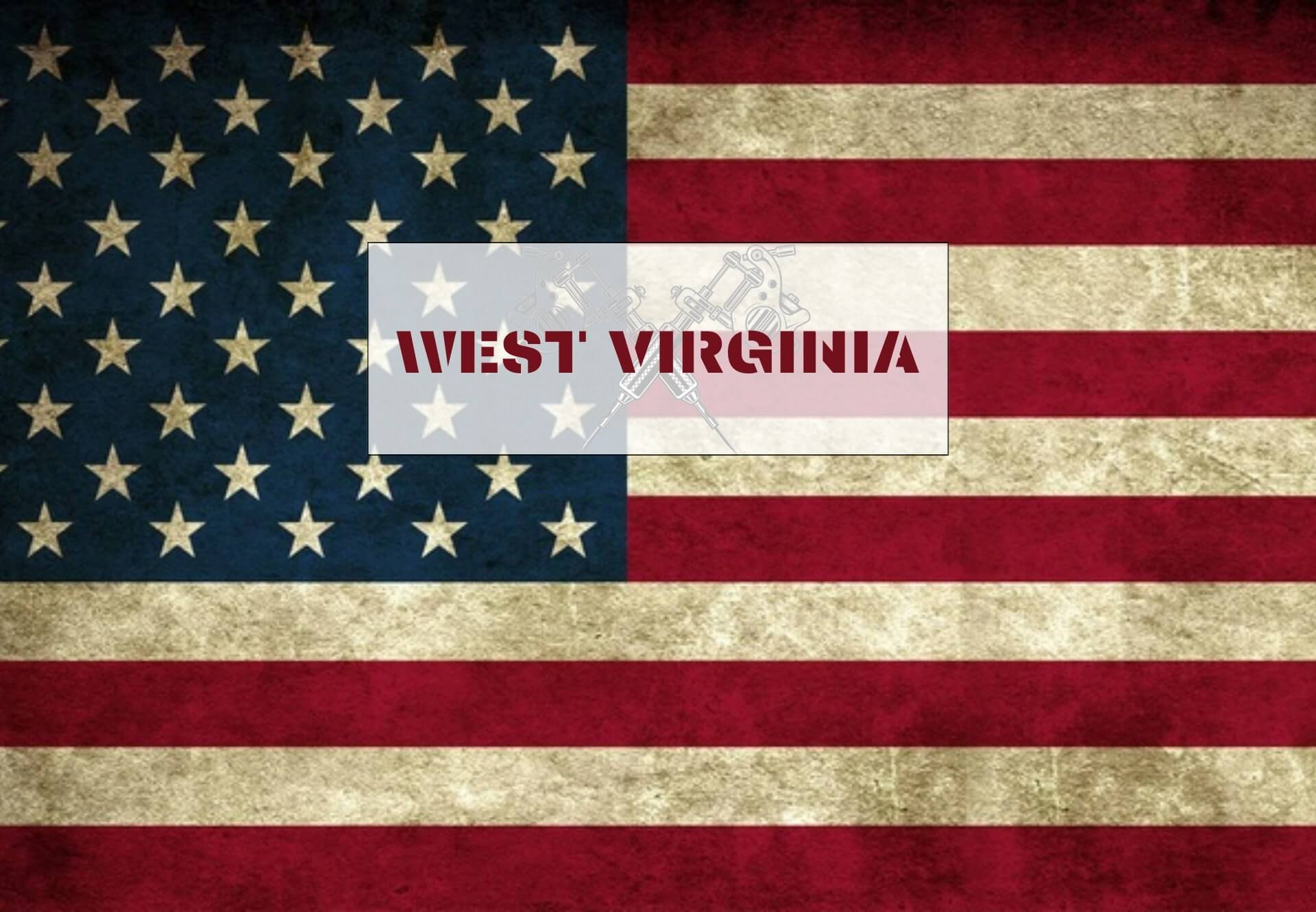West Virginia is a beautiful state loved by millions for a variety of reasons.
For once, it has an incredible natural landscape. The Appalachian Mountains provide a stunning backdrop for the many rivers and streams that flow through the state, and the forests are home to a wide variety of wildlife.
The people of West Virginia are also known for their friendly and welcoming nature. And most are super progressive which in the last 2 decades has contributed greatly to a booming tattoo industry.
This means that not only are there some great tattoo shops in West Virginia, but the state is also home to a number of talented and well-respected tattoo artists.
However, West Virginia has laws and rules that regulate tattooing just like every other state in the US.
Continue reading to learn more about the most recent West Virginia tattoo laws if you’ve been thinking about getting tattooed or establishing a career as a tattoo artist.
West Virginia Tattoo Laws & Regulations
As already mentioned, West Virginia’s regulation of the tattoo business in no way distinguishes it from other states. The fact is that tattooing is subject to some kind of regulation in the great majority of US states.
Of course, there are a few outliers, such as Maryland and Massachusetts, which have no age restrictions, and Nevada, which has no regulations whatsoever on the sector.
Laws for Clients
When it comes to laws for customers, most states focus on the minimum age requirement.
So, how old do you have to be to get a tattoo in West Virginia?
The answer is that you must be at least 18 years old to get a tattoo in West Virginia. This is the same age limit that applies in the vast majority of US states.
But, can you get a tattoo with parental consent in WV? Yes! West Virginia is one of many states that allow minors to get tattoos with parental consent.
In this case, both the parent and the minor must visit the tattoo shop together to fill out the necessary paperwork and provide identification. The parent must also sign a consent form authorizing the tattoo.
As for the placement of tattoos, there are no state laws in West Virginia that specifically address this issue. That means you can get a tattoo pretty much anywhere on your body that you want (as long as the artist is comfortable with it!).
Laws for Artists
It’s only right to begin this section by emphasizing that the tattoo artist, not the kid or their guardian, will be held accountable in the event that a person under the age of 18 receives a tattoo in West Virginia without parental authorization.
So, if you’re an artist working in West Virginia, please check ID thoroughly before beginning any work. It’s crucial since breaking the law might result in a penalty and/or jail time. The state gives out different penalties depending on how many times an artist has been caught breaking the law:
- 1st offense results in a $100 fine
- 2nd offense results in a fine between $500-$1,000 and/or a jail term between 10 days and 1 year
- 3rd offense results in a fine between $1,000 and $5,000 and/or a jail term between a month and a year
As you can see, it’s not worth the risk!
You must possess a current tattoo artist license in order to legally practice in West Virginia.
Completing a bloodborne pathogens training course is one of the requirements for earning certification as a tattoo artist. Once qualified, you are able to begin working as an artist—but only in establishments that have the necessary licenses. It is forbidden to carry out tattooing from any other location.
Additionally, the store must abide by a number of hygiene and safety rules, including but not limited to:
- using only single-use needles
- artists wearing disposable gloves at all times
- sterilizing all equipment
- having an autoclave on the premises
Of course, studios and artists also have some rights. Naturally, as long as it’s not discriminatory, they are free to refuse service to anyone for any reason.
Additionally, they are free to choose their own rates and specializations in terms of tattoo design and styles.
Frequently Asked Questions
We believe you now have complete knowledge of West Virginia’s tattoo laws. If not, feel free to go through the commonly asked questions listed below, where we’ve gathered all the details from the article as well as a few other details that could be relevant.
Can you tattoo without a license in WV?
Absolutely, you can’t – it’s illegal. You can only tattoo in a licensed studio as a licensed artist.
What age can u get a tattoo in Virginia?
The legal age to get inked in West Virginia is 18. If you’re a minor, you may get a tattoo with parental consent.
What are West Virginia’s tattoo license requirements?
For a full list of requirements, click here.
Can you get a tattoo at 13 in Virginia?
While there’s no regulation specifying the minimum age at which you can get inked with a parental consent form, many tattoo artists will not tattoo anyone as young as 13.
Is it legal to get a tattoo at 16 in Virginia?
Yes, it is. With parental consent, you may get a tattoo at 16 years old.
Where can I get a tattoo at 15?
Technically, there are plenty of states that allow you to get a tattoo at 15 with parental consent. However, yet again, some tattoo artists may not want to work with someone so young.
Where are tattoos illegal?
Nowadays, all states in the US allow tattoos. There are, however, some regulations that differ from state to state.
West Virginia Tattoo Laws: Conclusion & References
In conclusion, getting a tattoo is a common kind of body art that individuals of all ages appreciate. West Virginia has specific rules regarding tattoos.
Before being tattooed, you should be informed of the legal requirements in your state. The minimum age to get a tattoo in West Virginia is 18. However, if a kid can present a form of parental consent, they could be permitted to have a tattoo.
Just be especially careful to verify ID before beginning any work if you’re a West Virginian artist. You run the danger of paying penalties and possibly going to jail if you break the law. Additionally, confirm that you are working in a licensed studio and that your license is current.
The information in this article comes from official sources:


